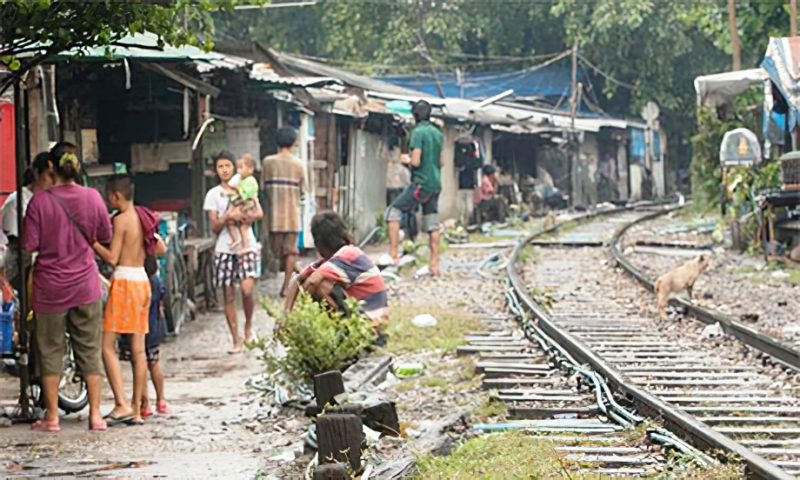Three months ago, if you had asked who are the most important people in the U.S. economy, the response would have been investors, CEOs, venture capitalists, entrepreneurs, bankers and others who are well rewarded by the marketplace. They all make scads of money.
The response is much different today.
Essential workers are now nurses, doctors, emergency responders, grocery store clerks, truck drivers, delivery people, postal workers, public health workers, farmworkers and others whom we depend on in order to eat and survive. Most of these are not highly rewarded by the marketplace, yet they are being asked to risk their lives while others shelter at home.
Rather than manoeuvring politically, government officials should focus on helping these people.
Many of them were already on the margins before the pandemic and now have been pushed over the edge.
It is appalling, but not surprising, that blacks and Hispanics are becoming sick and dying at disproportionate rates. Decades of racism left many minority Americans with crowded housing, bad health and little savings, making it more difficult to survive the pandemic.
Yet they make up much of the essential workforce that is at risk of infection.
The wages of all essential workers should be immediately raised to at least $15 an hour, with government subsidies to businesses that need them.
It is outrageous that the Trump administration is considering relaxing the minimum wage for farm workers.
Exploiting the most vulnerable populations to save the economy is immoral and out of the question.
Public health experts say that before we can safely return to work, we will need to put in place a system of testing and quarantine.
Not only must those who test positive be isolated, but those with whom they have recently been in contact must be quarantined so that they do not spread the infection further.
Before this can happen, not only must the COVID-19 curve be flattened, it must be bent downward. It is impossible to test and track the contacts of tens of thousands of new cases each day.
When the testing regime is up and running, essential workers should be the first tested, not just for their own good but also for the good of all. For example, grocery clerks must be tested, since they are in constant contact with other people.
If they are infected, others will get infected.
The government should use empty hotels to isolate the sick and quarantine those who have been in contact with the sick.
Thousands of new public health workers must be hired and trained to do the work of contact tracing — tracking down those who have been exposed to COVID-19.
Public health agencies might consider hiring unemployed waiters and salesclerks who already have the people skills needed for such work. They don’t need a college education.
Managing a quarantine is time-consuming and labour-intensive work for public health workers.
When the Rev. Steve Planning, my Jesuit housemate, tested positive for the virus on March 14, the 15 of us who live with him were quarantined for two weeks. We were confined to our house and no one was allowed in, including family, colleagues and employees.
Each of us was contacted by public health workers three or four times during the first couple of days of quarantine to make sure we were OK, to ask if we needed anything and to make sure that we understood the importance of staying in quarantine.
A big quarantine sign was put on our front door.
The public health department had each of us download an app named SureAdhere onto our phones. We used the app each day to give video reports to the health officials of our symptoms or lack of symptoms, including a daily temperature reading. Someone in the department had to review those videos.
Not everything worked perfectly.
The app did not remember my four-digit ID number, so I had to scrounge around on my desk for it each time I did a report.
A more serious problem was that the small electronic thermometers we were given to check our temperatures were not accurate.
Mine was a degree or more under my real temperature.
As a result, we all had to use a more sophisticated thermometer borrowed from the school nurse’s office.
Perhaps we were simply unlucky, but if our public health depends on knowing our temperatures, thermometers need to work.
Getting new thermometers is almost impossible. If you have one, test it now before you are sick.
Besides being in quarantine, we were told to keep “social distance” from one another. For those used to institutional living like us, quarantine is unpleasant.
For a normal middle-class family, it would be very difficult. For a low-income family or people in poverty, it is near impossible.
How do you keep social distance in a small house or apartment?
How do you disinfect surfaces with children running around the house?
How do you get food during a quarantine?
If testing and quarantine are essential for reopening the economy, a major effort will be needed to help those on the margins, because for them quarantine is impossible without help.
No one will come out of this crisis whole. Everyone must make sacrifices, especially those who most benefited from the economic system in the past. Those who are essential workers today should not be worse off when we transition back to work or when the pandemic is over. We are making great efforts to flatten the COVID-19 curve. The income and wealth inequality curves should also be flattened, not made worse by this epidemic.
- Thomas Reese SJ is a senior analyst at Religion News Service, and a former columnist at National Catholic Reporter, and a former editor-in-chief of the weekly Catholic magazine America. First published in RNS. Republished with permission.
